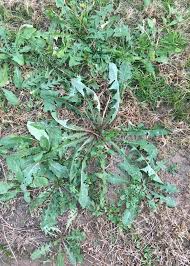Extension News: Controlling Weeds and Soil Compaction in the Vegetable Garden
Published 1:17 pm Wednesday, May 27, 2020

- Extension News: Controlling weeds and soil compaction
Jeremy N. Williams, University of Kentucky Cooperative Extension Service
Home gardeners are now looking forward to that first ripe tomato or ear of corn picked from their own carefully tended gardens. But after some vigorous hoeing on a hot humid day, some may be asking themselves if it is all worth it.
Weeds compete with crop plants for water, nutrients and sunlight. Some weeds can chemically inhibit vegetable plant growth. Others host insect pests and pathogens. All of these result in fewer fresh vegetables for your table.
There are some preventive practices that effectively combat weeds. Frequent hoeing or rototilling on a weekly basis helps eliminate weeds when they are small and easily removed.
By planting rows a little closer, vegetable crops provide more shade which also helps to reduce weed pressure. After harvesting a crop, plant another in its place to continue using the space.
Mulching works very well in the home garden. Use organic material such as grass clippings, leaves or straw to eliminate weed growth and build up organic matter to make the soil more fertile and friable. Do not use grass clippings from a lawn that was treated recently with the herbicide 2, 4-D. Treated clippings can cause twisting of the vegetable plants and can even kill some sensitive vegetable crops. Be careful about the kind of organic material you use. Hay can introduce a considerable load of weed seeds into your garden.
Black plastic mulch is of specific benefit to certain vegetables including tomatoes, eggplants, peppers and vine crops. In addition to shading out and eliminating weeds, plastic mulches conserve moisture and promote early crop growth by helping to heat up the soil in spring. Landscape fabric has the added advantage of being water permeable and can be used for multiple years; although it is more expensive than black plastic.
Most importantly, do everything possible to keep garden weeds from going to seed. One red root pigweed plant can produce 100,000 seeds that can continue to germinate over the next 15 to 20 years.
Also, as we progress into the garden season continue to inspect your vegetable garden two to three times per week. Watch for insects and diseases on your plants. If you see any diseased or insect damaged plants, treat immediately.
On another note, when reducing those weeds, it’s a good time to think about your soil. Soil compaction creates an unfriendly growing environment for plants and is a serious problem for many home gardeners. However, it is relatively easy to prevent.
Compaction transforms soil into a difficult environment for plant growth by making it harder for roots, water and soil to penetrate the ground. Major causes of compaction are working the soil when it is too wet, foot traffic and excessive rototiller use.
To reduce this problem, it is best to avoid working in the garden or walking in it when the soil is too wet. Squeeze a handful of soil and if it forms a muddy ball, rather than crumbling when you open your hand, stay out of the garden area.
Walk between plants and rows in the garden area to reduce compaction in primary plant growth areas.
Excessive rototiller use destroys soil structure and promotes compaction. When compaction takes place in a dense soil structure, it also makes root growth more difficult.
A little hand hoeing, rather than a rototiller, may be all you need to do to eliminate a few weeds. It usually causes less soil damage than repeated rototilling and is less harmful to the earthworms that help aerate the soil.





